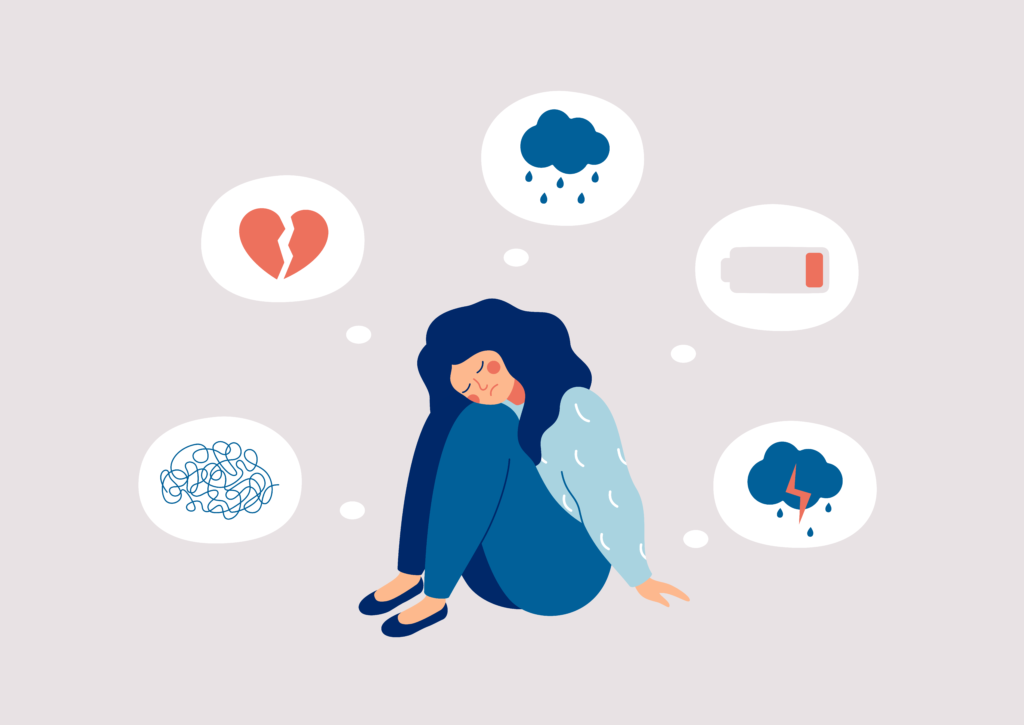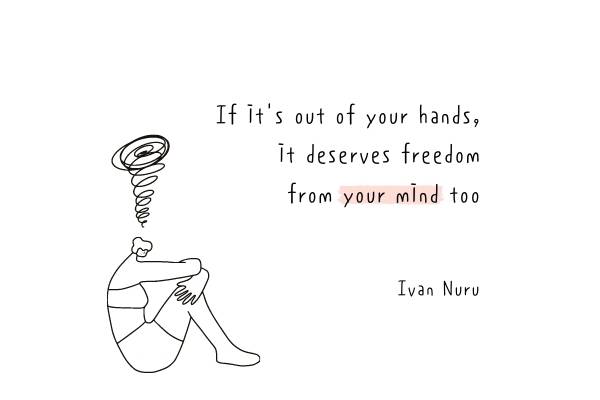Depression
This page is intended to provide resources and information for dealing with depression. If you or a friend are struggling with what you think might be depression there are countless ways to get help, and sometimes the safest and most effective thing to do is contact a faculty/staff member. There are people who devote their career to helping students manage depression. Life is full of ups and down, but there is always hope.
Never hesitate to contact the counseling center, their job is to help you!
The best way to contact the counseling center is to call 980-598-1710 or email at counseling.clt@jwu.edu
“If you are depressed, you are living in the past. If you are anxious, you are living in the future. If you are at peace you are living in the present.” —Lao Tzu, philosopher
What is depression?
You know yourself better than anyone, if you are starting to feel like something is wrong or you are not behaving as you normally are, you could be suffering from depression or anxiety. There is no shame in dealing with either of these or any other mental illness, they happen to many people, and many people find ways to cope with them and live a fulfilling and happy life. Depression and anxiety can come and go, and can be triggered by certain life events.
"Depression (major depressive disorder) is a common and serious medical illness that negatively affects how you feel, the way you think and how you act. Fortunately, it is also treatable. Depression causes feelings of sadness and/or a loss of interest in activities you once enjoyed. It can lead to a variety of emotional and physical problems and can decrease your ability to function at work and at home." - American Psychiatric Association
Common symptoms:
- Feeling sad or having a depressed mood
- Loss of interest or pleasure in activities once enjoyed
- Changes in appetite — weight loss or gain unrelated to dieting
- Trouble sleeping or sleeping too much
- Loss of energy or increased fatigue
- Increase in purposeless physical activity (e.g., inability to sit still, pacing, handwringing) or slowed movements or speech (these actions must be severe enough to be observable by others)
- Feeling worthless or guilty
- Difficulty thinking, concentrating or making decisions
- Thoughts of death or suicide
You may not deal with all of these symptoms. Depression and anxiety impact everyone differently. No matter what, you can adopt a self care routine that prioritizes your mental wellness, and you can reach out to a counselor who can connect you with additional resources and tools.
Additional resources
Do not hesitate to get help even if you aren't sure that you are struggling with depression, anxiety, or any other mental illness, there is no harm in reaching out for help.
The best way to contact the counseling center is to call 980-598-1710 or email at counseling.clt@jwu.edu
Take action immediately and prevent anxiety with this practice
Suicide Hotline

Books
-
Exercise for Mood and Anxiety by
ISBN: 9780199830503Publication Date: 2011-01-01Ebook - Click title to read online. -
 Help Yourself Move Out of Depression and Anxiety
by
ISBN: 9780585496030Publication Date: 2000-01-01Ebook - click on title to read online.
Help Yourself Move Out of Depression and Anxiety
by
ISBN: 9780585496030Publication Date: 2000-01-01Ebook - click on title to read online. -
-
-
Out of the Madhouse by
ISBN: 9781785923517Publication Date: 2018-01-18Once upon a time, there lived a happy family called the Maitlands. Iain, the father, was a writer. Tracey, the mother, worked at a nearby school. They had three bright and charming children, Michael, Sophie and Adam. It looked like the perfect family life. Until October 2012, when Iain received a message. Michael had been taken to hospital. Years of depression, anxiety and anorexia had taken their toll, and he had pneumonia and a collapsed lung. The doctors weren't sure if he would make it. Told with humour and frankness through Michael's diary entries and Iain's own reflections, Out of the Madhouse charts Michael's journey to recovery from entering the Priory and returning home, to becoming a mental health ambassador for young people. -
When Words Are Not Enough by
Call Number: RC451.4 .W6 R37 1997ISBN: 9780553067132Publication Date: 1997-05-05One in four women will experience clinical depression, anxiety, or premenstrual depression in her lifetime. The good news is that popular new prescription drugs like Prozac and Xanax bring much needed relief. -
Care for the Mental and Spiritual Health of Black Men by
Call Number: RC451.5.N4 G74 2020ISBN: 9781498567121Publication Date: 2019-11-01Black men need hope to survive and, ultimately, flourish. -
The Unapologetic Guide to Black Mental Health by
Call Number: RC451.5.N4 W35 2020ISBN: 9781684034147Publication Date: 2020-05-01An unapologetic exploration of the Black mental health crisis--and a comprehensive road map to getting the care you deserve in an unequal system. -
The Anatomy of Anxiety by
Call Number: BF575.A6 V67 2022ISBN: 9780063075092Publication Date: 2022-03-15From acclaimed psychiatrist Dr. Ellen Vora comes a groundbreaking understanding of how anxiety manifests in the body and mind--and what we can do to overcome it.
Depression can improve with self care practices and the help of a professional.

From
https://www.goodhousekeeping.com/
health/wellness/a41248198/types-of-depression/
Depression happens to many people, there is always hope and there are tools to help you.
What is anxiety?
"Experiencing occasional anxiety is a normal part of life. However, people with anxiety disorders frequently have intense, excessive and persistent worry and fear about everyday situations. Often, anxiety disorders involve repeated episodes of sudden feelings of intense anxiety and fear or terror that reach a peak within minutes (panic attacks)" states MayoClinic.
Feeling overcome with worry, racing thoughts about anything or nothing specific at all, physical symptoms of fear (an upset stomach, shakiness, sweating, numbness) can all be signs of a generalized anxiety disorder. Much like depression, tons of people live fulfilling and exciting lives while still struggling with an anxiety disorder. Anxiety disorders are increasingly common considering high pressure work, school , and social environments. Many educators are choosing to tailor their curriculum to account for higher levels of anxiety in students.
There are many tools and resources available for dealing with anxiety. The best thing you can do for your anxiety is practice mindfulness (visit the mindfulness page of this LibGuide for tips) and reach out to a professional who can assist you and provide resources you can add to your self-care toolkit.
The best way to contact the counseling center is to call 980-598-1710 or email at counseling.clt@jwu.edu

